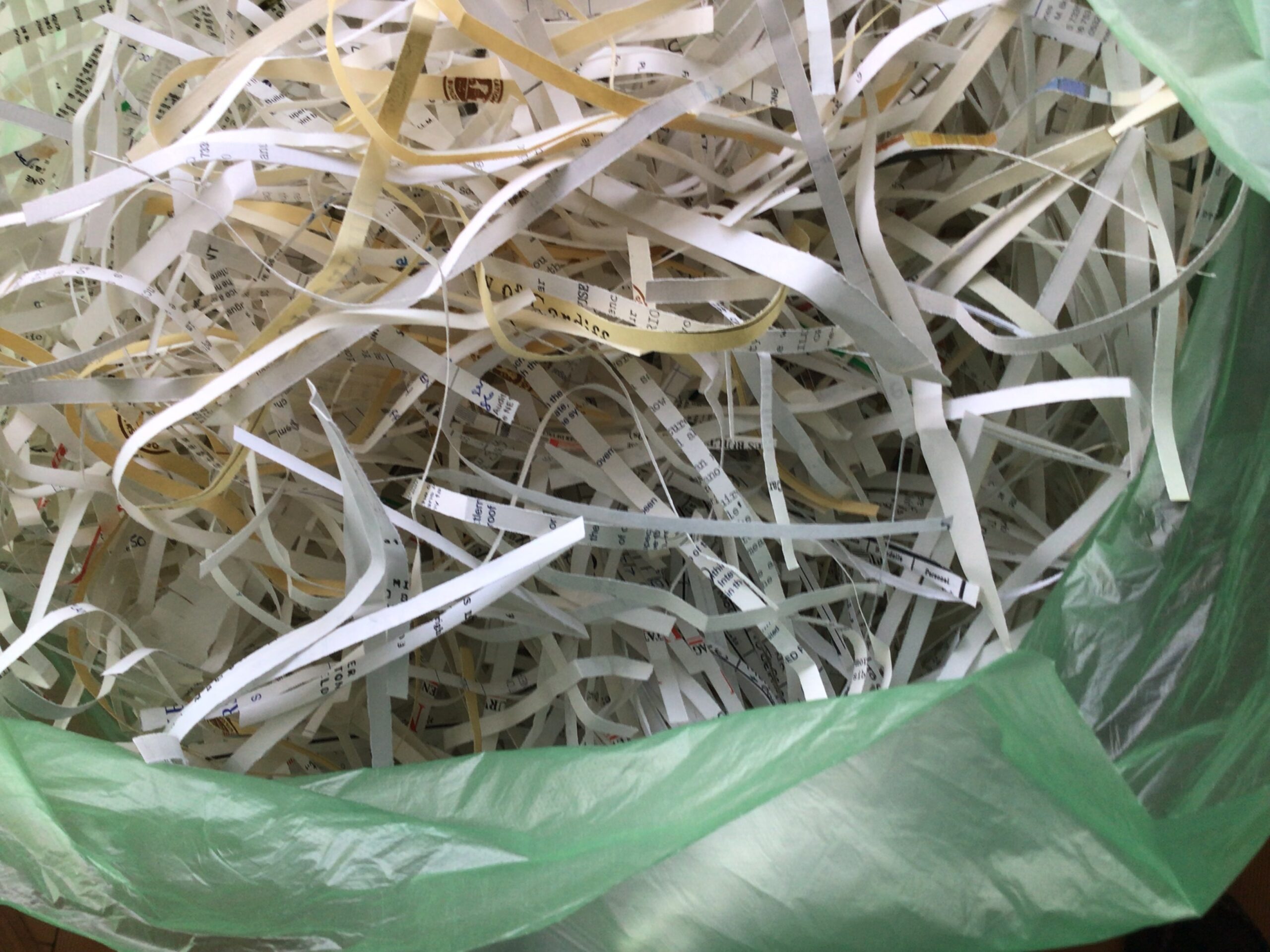
I’ve been clearing out. Clearing cupboards in the front room, full of books, files, magazines, papers, photos, games, maps and other detritus. Many of them have been there since the cupboards and the bookshelves above them were built some thirty years ago. There’s nothing special about such a task, especially for one trained as a librarian. On reflection, clearing out, well done, is closer to the work of an archivist – someone who knows that to keep everything that happens to survive is futile, and that the real skill is in retaining what might matter in future, to someone or other.
But I know this isn’t just a spring-clean, a routine re-ordering. It’s part of something broader shift, a shedding of inessentials. I don’t mean a Marie Kondo, tidy-up-to-spark-joy exercise. It’s a wider wish to live more simply and more lightly. I’m fed up of flying. I scowl at the drivers of four-by-fours in the street. I get no pleasure from buying new things. I’d rather watch the blackbirds in the garden than the next grim political story on television. Getting rid of old stuff is just another aspect of this quasi-Buddhist urge.

The cupboards have yielded plenty of surprises. Some things I’d entirely forgotten I’d kept. Funeral services of long-dead aunts and godmothers, a table football set, a guide to Seoul, a cup won by my dad in the 1930s as captain of a school team, lawyers’ letters about buying and selling previous homes. Personal letters from a mentor and friend who died long ago, Plasnewydd Branch Labour Party minutes from the early Thatcher years, cards signed by work colleagues to mark my departure, Wakefield school reports (‘his prose is usually sound’), a letter from Rhodri Morgan enclosing a donation, maps of Lochgilphead and the Isle of Mull. Diplomas and certificates for attaining qualifications I’d forgotten about, old Christmas card lists, a photo of my Uncle Jack, bronzed and near naked on a French beach, Elisabeth Schwarzkopf singing Four Last Songs.
Some things have been easy enough to discard, especially if new homes can be found for them. Glamorgan Archives, to my surprise, seem happy to receive the Plasnewydd papers, which also contain our innocently enthusiastic newsletters and posters, including the classic slogan ‘Dobbs for jobs’. (Freda Dobbs, our candidate, worked in a bingo hall, so knew many local people, and to everyone’s surprise got elected, putting an end to decades of local Tory domination and delivering the county to Labour in 1981.)

Similarly, the Oxfam bookshop, again to my surprise, thought they’d be able to sell the books I’d kept in one of the cupboards from my father’s library, books about Samuel Johnson and the philosophy of time. (Dad was an amateur philosopher, and time, for some reason, had a particular hold on him.)
Equally, it’s not hard to decide to keep some things. I wouldn’t want be parted from Schwarzkopf and Four last songs, or my French LP of Blind Lemon Jefferson.
But between the can-go’s and the must keep’s there’s another class of object I worry about, the borderline cases. Take this newspaper article with an image of me and other hopeful cyclists about to set off from Cardiff City Hall to Aberystwyth to raise money for Nicaragua. If it goes, so does all evidence of me as I was then. But that raises a serious problem – a problem, you might say, in the philosophy of time, or of consciousness. Who was I then? And I am the same person now as I was then? (If not, it matters less, of course, that the cutting survives.) From a material point of view we are two different people, more or less: most of the cells in my body then have died off and been replaced by new ones. Or not replaced at all, in the case of brain cells (this exercise strengthens my belief that brain decline set in shortly after 1973, when I graduated).

The other problem when staring at these borderline objects concerns the task facing the person who next looks through the cupboards. That might be me, of course, during a future clear out. But it might be someone else, and I need to think about not burdening them with the same uncertainties I face now. Which reminds me that there’s another meaning to the phrase ‘clear out’. It can also suggest leaving the stage, absenting yourself from the company. That action too carries some responsibilities.
Thinking about both these arguments, I reach the conclusion that the safest course of action is ‘if in doubt, throw it out’. I could always console myself with the thought that, though the object no longer exists, I can still summon up the memory of it, and why I’d kept it up to now. As long as I can rely on my memory, of course. And so the clear-out goes on and the days go by. The green recycling bags fill with the fettuccini and tagliatelle of shredded paper, and the cupboard shelves begin to relax, relieved of the weight of distant lives.


Leave a Reply